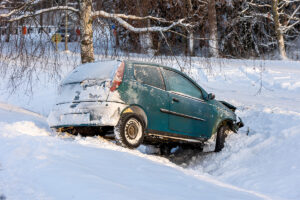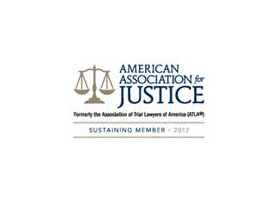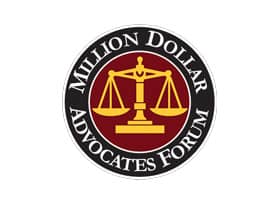Can a Municipality Be Liable for Failing to Keep the Roads Cleared of Snow and Ice?
 Though the annual snowfall can vary across the state of New Jersey, many places get more than 20 inches in any given year. The accumulation of that much snow can make roads precarious. Fortunately, because snow is a part of winter in the Garden State, most municipalities have snow plows to help keep the roads clean. What are the duties of a municipality with respect to snow removal? Can you successfully sue a municipality in New Jersey for negligence if you were injured in an accident on slippery roads?
Though the annual snowfall can vary across the state of New Jersey, many places get more than 20 inches in any given year. The accumulation of that much snow can make roads precarious. Fortunately, because snow is a part of winter in the Garden State, most municipalities have snow plows to help keep the roads clean. What are the duties of a municipality with respect to snow removal? Can you successfully sue a municipality in New Jersey for negligence if you were injured in an accident on slippery roads?
What Duties Does a New Jersey Municipality Have With Regard to Removing Snow From Roads?
The removal of snow from most roadways in New Jersey is handled at the municipal level. While municipalities may enact ordinances requiring private property owners to engage in snow removal, there is no state law that mandates specific action by municipalities to keep roads cleared.
Can You Sue a Municipality in New Jersey for Negligence in Plowing or Clearing Roads?
As a general rule, you cannot sue a municipality for failure to remove snow or ice from the roadways. New Jersey has long recognized what is commonly referred to as “governmental tort immunity,” which generally protects government bodies from personal injury liability. That does not mean that a government entity may never be sued for losses suffered due to carelessness or negligence. However, such claims must comply with the provisions of the New Jersey Tort Claims Act.
How Does the New Jersey Tort Claims Act Work?
The New Jersey Tort Claims Act sets forth the conditions under which a municipality may be sued for any type of injury:
- The injured person must file a notice of claim with the specific municipality within 90 days of the date of the injury. The notice of claim must include information about the facts and circumstances surrounding the accident, the nature and extent of any injuries suffered, and the amount of compensation requested.
- The municipality is allowed up to six months from the filing of the notice of claim to investigate the allegations. During this time, the injured party may not take any other legal action.
- The municipality can raise a number of defenses, including the “weather immunity defense.”
What Is the Weather Immunity Defense and How Does It Affect a Claim Against a New Jersey Municipality?
The so-called “weather immunity” defense holds that a municipality generally has no liability for personal injuries that stem from weather conditions, such as snow or ice on the roads. Accordingly, in most instances, a person may not recover from a municipality for injuries that occur on unplowed or carelessly plowed roads. The defense, however, is not absolute. If the municipality or its employees had prior knowledge of a dangerous situation, or if their actions created or contributed to a dangerous situation, there may still be liability. Such circumstances, however, are typically difficult to prove.
Contact the Law Office of Howard D. Popper
At the Law Offices of Howard D. Popper, we can help protect your rights. For a free initial consultation to discuss your options after any type of personal injury, contact our office online or call 973-993-8787 to set up an appointment. We have offices in Morristown and Newton.
We handle all personal injury claims on a contingent fee basis. You won’t pay any attorney fees unless we recover damages for your losses.













